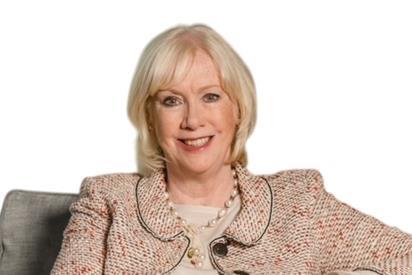Former English Partnerships chair and crossbench peer Margaret Ford pays tribute to the the former deputy prime minister, who died last week
In the many obituaries for the late John Prescott, his accomplishments in the field of climate change have been given great prominence; alongside his instrumental role as a “binding agent” for the Labour Party. These were important legacies and his perseverance in Kyoto was legendary.

But little has been written about his incredible impact on the built environment. From 1997 he served as secretary of state for transport, the environment, local government and the regions. After a brief hiatus, he returned to the office of the deputy prime minister in 2002, covering planning, housing and local government.
In 1998 he commissioned the Urban Task Force, which set the modern framework for the built environment. The principles of its report – Towards an Urban Renaissance – became the route map for much of the development that took place in the first decade of the 21st century.
John drove through that change personally and provided the political leadership which gave us all the inspiration to build great places and decent homes. From his sponsorship of the millennium villages to his tireless regeneration of the English coalfields, he was at the centre of it all.
He believed passionately in good design, in using brownfield land first, in driving up standards, in embracing modern methods of construction and in working hand in hand with the house building and development community to make sustainable development a reality
He believed passionately in good design, in using brownfield land first, in driving up standards, in embracing modern methods of construction and in working hand in hand with the housebuilding and development community to make sustainable development – then just an emerging concept – a reality.
As chair of English Partnerships, I had a ringside seat as he went toe to toe with some of the biggest characters in development. Huge industry figures such as the late Alan Cherry and much missed Tony Pidgley were on the same wavelength as John: completely obsessed with quality and he relished engaging with them. Every August he spent weeks privately visiting developments across the whole country, no detail escaping his attention.
>> See also: The industry should be grateful John Prescott stepped up on health and safety – because somebody had to
It was no surprise that one of the first tributes after his death came from the King: the work of the Prince’s Foundation was much admired and supported by John and they understood and respected each other.
When London was awarded the 2012 Olympic Games, John – together with Ken Livingstone and Robin Wales – was adamant that the legacy had to be a social one. After burying the political hatchet with Ken, his personal decision to provide half a billion pounds of new funding to remove the power lines that ran through the site created the conditions to design a meaningful new neighbourhood of London.
It is regrettable that the financial crisis in 2008 and the return of the coalition government in 2010 stalled the momentum that John had built. But his legacy remains: on the Greenwich peninsula, in the Olympic Park, in Sheffield, Liverpool and Manchester, in every coalfield community, urban extension and new development that emerged during his tenure as deputy prime minister. And in the quality of the hundreds of thousands of affordable homes that have been built since 1997.
Those of us who worked with John closely recognised a minister of rare talent: with vision, a clear point of view and an absolute bias to action. When he committed, he never wavered and was the strongest advocate for what he believed in. When you earned his trust, he was totally and utterly supportive.
My abiding memories from that period were of working with incredible civil servants, hugely energetic developers and phenomenal colleagues in English Partnerships, and the regional development agencies. Under the deputy prime minister’s leadership, we accomplished a great deal.
We will never, ever, see his like again.


























No comments yet